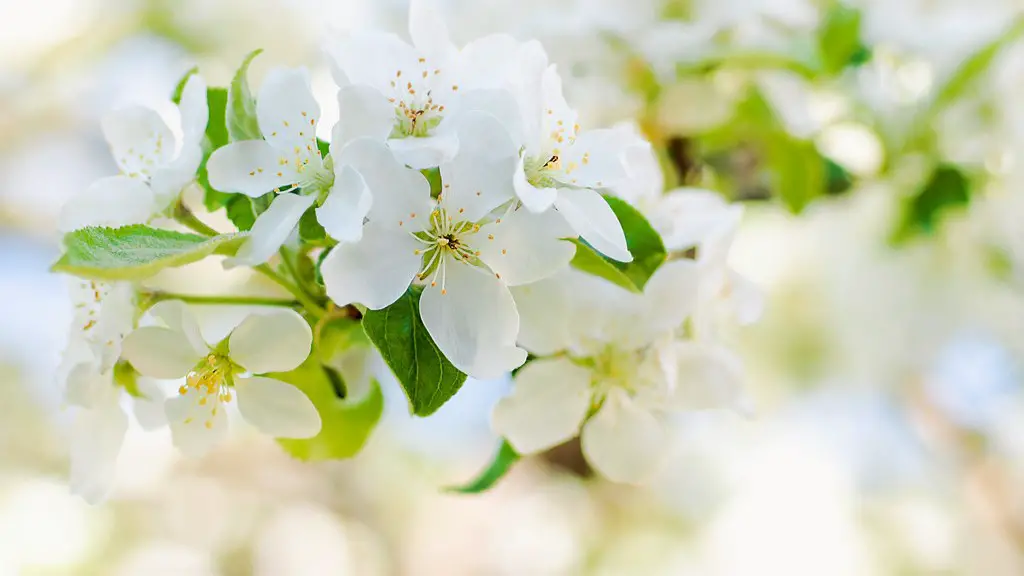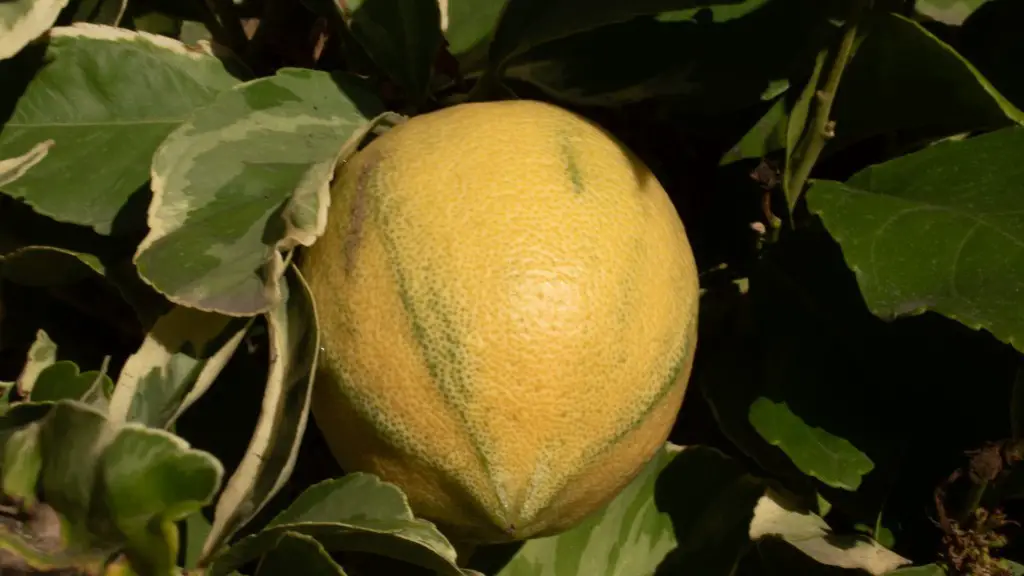The apple tree is a necessity for any orchard, providing shade, beauty and of course a variety of delicious apples. While the tree may look healthy year round, why wouldn’t it flower in the spring? The answer to this question is not a simple one, as there can be a range of factors that all contribute to a tree’s lack of flower production.
Environmental conditions must first be considered when diagnosing a tree that’s not flowering. Apple trees can sometimes be affected by extreme climatic conditions such as excessive heat or cold, or extended periods of drought. If the tree is experiencing any of these conditions, it may be unable to produce new flowers.
Next, it is important to understand if the tree has adequate nutrition, including enough nitrogen, phosphorous, and potassium. Malnutrition can result in the lack of flowering, so it is important to fertilize the tree appropriately and provide other necessary nutrients such as macronutrients and micronutrients.
Inspecting the tree itself will also be important in diagnosing the issue. Are the branches evenly spaced? Are there any pests present? Is there any dieback? Are the roots healthy? All of these things can severely impact a tree’s ability to produce new flowers.
Finally, it is important to look for any diseases that may be present in the tree. Diseases such as apple scab, fireblight, or cedar-apple rust can all prevent flowering from occurring. Catching and treating these diseases as early as possible is the key to restoring the apple tree’s flower production.
Root Damage
Another cause of an apple tree not flowering could be physical damage to the root system caused by poor soil preparation. Proper soil preparation is essential for the success of an apple tree and should include tilling, weeding, and removing stones to create a smooth surface for the tree to take root. If any of these steps are skipped, the apple tree may have difficulty accessing water and nutrients, reducing its ability to flower.
Further, changes in soil pH can also cause the tree to not flower. The optimal pH for apple tree growth is between 6 and 6.5, so if the pH is outside of this range, or if the levels of magnesium, sulfur or nitrogen are too high or too low, it could result in the tree not flowering.
Finally, overwatering or underwatering can cause an apple tree to not flower. Apple trees require a moderate amount of water, as too little or too much can lead to not enough buds producing flowers. If a tree is overwatered, the roots cannot effectively absorb the moisture and the tree may not bloom, while underwatering can also cause a lack of flower formation.
Bud Development
Bud development, or the formation of the flower buds, is an important step for apple trees to flower properly. If the buds fail to mature, the tree may not be able to produce flowers. This can happen for a range of reasons, from an improper pruning to a lack of light or an excess amount of fruit, which can lead to the buds not producing flowers.
In terms of pruning, it is important not to prune too much as that can cause bud development to stop at an important phase. Only prune the tree when it needs it, as too much pruning can reduce the flower production of a tree. Also, providing the tree with adequate sunlight is essential, as too little can reduce the tree’s ability to flower. Finally, while the presence of fruit should be expected of an apple tree, too much of it can actually reduce the tree’s flower production, as the tree must put its energy into the fruit instead of into the buds.
Pest Infestations
Pest infestations can also be a cause of an apple tree not flowering properly. The most common pests to look for are aphids, spider mites, scale insects, and mealy bugs, as these are all capable of reducing flower production on a tree. These pests must be identified before they can be treated, so it is important to inspect the tree for any signs of infestations.
If any pests are found, action must be taken to eradicate them. Generally, this is done with some combination of horticultural oil, insecticides, and biological controls. These tools can be used to both control the current infestation and prevent future ones from occurring.
Tree Age
Lastly, it is important to consider the age of the tree when diagnosing an apple tree not flowering. Apple trees take a few years to mature, and until then they may not produce any flowers. However, if the tree is mature and still not flowering, then another cause must be looked into.
Further, the age of the tree should also affect the way it is treated. For instance, an old apple tree may not respond to fertilizer the same way a young tree would, so the treatment could be different. Also, a young apple tree may need to be pruned more often than an old one, as it can still benefit from regular pruning to encourage flower production.
Competition For Nutrients
Finally, it is important to be aware of any potential competition for nutrients the tree may be facing. If the tree is planted too close to other trees, or if it faces competition from grasses or other weeds, it can have difficulty accessing the nutrients it needs to flower. Removing any potential competition for nutrients is essential for flower production.
Also, if the tree is planted in poor soil, it may not have sufficient nutrients to flower. If this is the case, it is important to amend the soil with a good quality compost or other organic matter to help the tree access the necessary nutrients.
It is also important to ensure the tree is adequately mulched to retain moisture and prevent weeds from competing with it. If the tree has access to sufficient nutrients, light and water, it should be able to flower properly.



